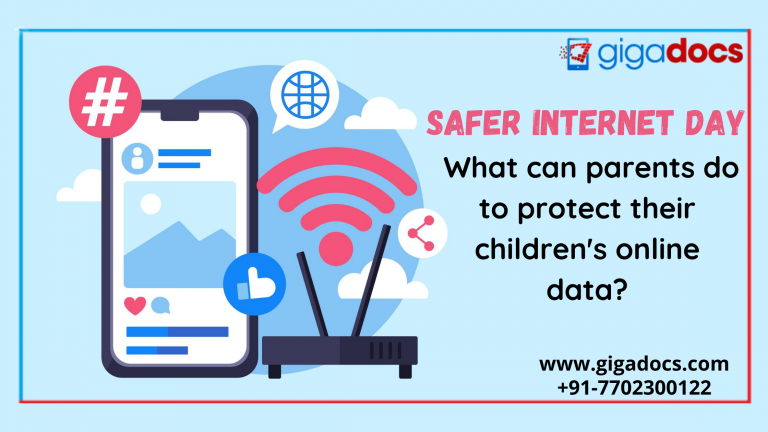For children, the internet can be an excellent help. They can use it for interactive games, school-related research, and communication with teachers and other students. However, there are risks of internet use. It may lead to online predators, cyberbullying, and inappropriate content. Predators may use apps and websites to pose as a child or adolescent looking for a new friend. They may press the child for personal information such as their address and phone number or encourage children to call them.
Though you may not realize it, the most popular social networking sites prohibit anyone under the age of 13 from signing up. By enforcing these rules, social networking companies have unintentionally created another milestone for children on their path to adulthood. Facebook users surpass the age barrier due to the website’s inability to verify ages despite the age restriction.
Parents Role for the Cyber Safety of their Children
Parents should keep an eye on what their children see and hear on the internet, who they meet, and what personal information they share. Please speak with your children, monitor their activities, and protect them from the malicious actions of the internet.
You can use online tools to restrict your children’s to protect them from Internet predators and access to adult content. Parental controls are available from many Internet service providers (ISPs). You can also get software that helps you block access to websites, restricts the transmission of personal information over the internet, and are capable of monitoring and tracking your kid’s online activity.
Consider the following tips to protect children while they use the internet:
- Please help your child understand that they should never reveal personal details like their school name, location, phone number, or address.
- Inform your children that they should only use a screen name and not share passwords.
- Don’t let the young minds respond to any threatening text, post, message, or email.
- If your child reports an uncomfortable online exchange, take them seriously.
- Engage in online activities along with your kids.
- Examine your credit card and phone bills for any unusual account charges.
- Let your kids know that they must never agree to meet in person with anyone they met online unless they have parental supervision and permission.
- Determine whether your child’s school, after-school program, friends’ homes, or any other location where children may use a computer without your supervision offers online protection.
- Never allow your child to post or trade personal photographs.
- Teach your children safe and responsible online behavior. Monitoring their cyber usage is essential than blocking the objectionable content.
- Devote some time online with your kids to teach proper online conduct.
- Keep the computer in a common area where you can observe and monitor its use, rather than in individual bedrooms. Keep track of how much time you spend on your smartphone or tablet.
- Make a note of your children’s favorite websites for easy access.
There is a risk of eye strain, wrist strain, and other injuries whenever someone uses a computer. You can help prevent this by limiting your children’s time spent on computers and mobiles.
| Safer Internet Day Join us on Tuesday, February 8, 2022, as we celebrate the 19th edition of Safer Internet Day, with events taking place worldwide. With the theme “Together for a better internet,” the day will encourage all parents to work together to make the internet a safer and better place for children and young people. |
There are numerous ways to commemorate Safer Internet Day. The key is to recognize that technology can be highly beneficial if proper precautions are taken. We hope you will set aside some time today to consider how you can help to encourage and protect creativity and technological innovation. With the benefits of digital innovation, creativity, and convenience comes many risks, including those posed to our children. Identity theft is one of the most concerning risks, especially for children.
Screen time and Effects on Kids Eyes
There are numerous reasons to limit your child’s screen time, including encouraging outdoor play and healthy activity, fostering healthy sleep habits, and promoting in-person social relationships. Another aspect to consider is eye health. Here are a few ways that screen time can harm children’s eyes.
- Tired Eyes
Asthenopia is identified by eye discomfort, vision blurring, and headache. Overuse of the eye, such as staring at a screen for an extended period, can result in asthenopia. Any glare on the screen can strain the eyes even more. Children suffering from eye fatigue may complain of headaches, eye pain, or tiredness. They may even lose interest in activities like reading.
- Eyes that are Dry and Irritated
Long periods of screen use can also cause dryness and irritation of the eyes. According to studies, people of all ages blink far less frequently when concentrating on a screen, causing the eyes to dry out.
- Loss of Focus and Adaptability
When children’s eyes remain focused close-up for extended periods, it can be difficult for them to adjust to distance vision later in life. However, this is a temporary concern in most cases, and the eyes quickly return to their normal flexibility.
- Nearsightedness
Children glued to their screens are usually found indoors. Natural daylight exposure is essential for eye development. Kids need time outside to play not only for their health but also for their eyes. According to research, children who spend more time indoors are more likely to develop nearsightedness (myopia). Researchers believe sunlight plays a vital role in healthy eye development.
Assist Your Child in Developing Good Eye Habits
Most parents are unable to remove screened devices from their children’s lives. They are an inevitable part of modern life. You can teach your child healthy screen time habits to protect their eyes. Make regular eye exams a part of your child’s healthcare routine. Because your child’s vision is a rapidly developing sense, it deserves to be screened for problems and treated as soon as possible to ensure the best possible outcomes.
Even if your child receives a routine vision screening, they may still be at risk of asthenopia or other eye problems. If your child has persistent headaches, dry or irritated eyes, or eye pain, they should have a comprehensive eye exam with a pediatric ophthalmologist or optometrist. Comprehensive eye exams, as opposed to vision screenings, assess not only the focusing system of the eye but also its structure and overall health, looking for any underlying problems that may come during times of high stress.
Gigadocs is here with the best pediatric ophthalmologists to consult from the safety of your home, reach us to tele-book pediatric ophthalmologists around you:
Download the Gigadocs app on-
- IOS App – apple.co/2W2iG4V
- Android App – bit.ly/33AQoRC
To know more and schedule a Virtual Consultation demo, Email @ info@gigadocs.com.




